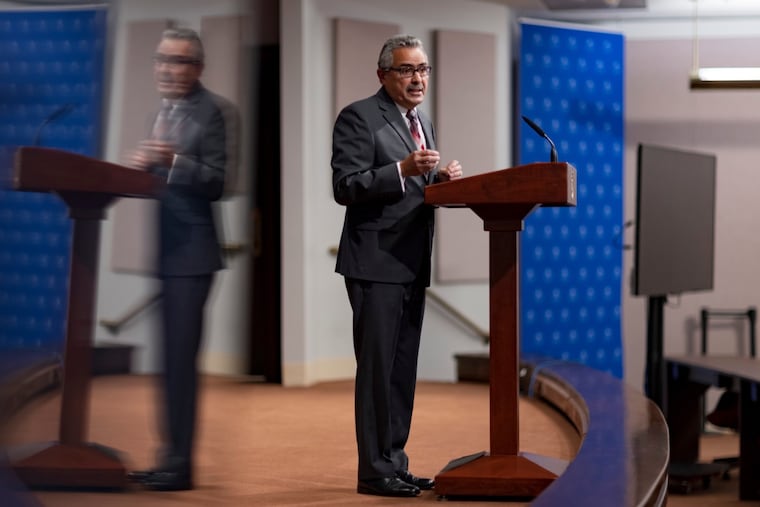Pa. Dept. of Aging funds task force to fight financial crimes against seniors
The Pa. Department of Aging found the most prevalent types of financial elder abuse are unauthorized bank withdrawals, scams, and fraudulent loans. Most are perpetrated by family of seniors.

In response to an increase in financial elder abuse, the Pennsylvania Department of Aging has funded a four-member task force to assist in probing complex cases against older Pennsylvanians.
As one of the fastest-growing forms of elder abuse, financial exploitation requires the work of many state and local agencies to investigate. Last week, the Department of Aging announced plans to form a dedicated investigative unit to support probes into complex financial exploitation cases.
The Department of Aging won $666,000 in federal grant funding for the unit.
“Based on a sample of 22 cases where we exercised enhanced coordination and early intervention, nearly $3 million in assets were protected from further exploitation,” Secretary of Aging Robert Torres said in a statement.
“We have federal funding for the next two years” to assist in investigating and resolving cases, Torres said.
The Financial Abuse Specialist Team, or FAST, consists of a supervisor, two analysts, and an attorney to assist police, social workers and other agencies.
The task force evolved from a two-year pilot program run by David Aiello, a retired state trooper with expertise in financial investigations who served as a resource for 52 county agencies. The Department of Aging grant funds another two years.
Financial exploitation ranks among the top three types of elder abuse reported to the Pennsylvania Department of Aging. In a June 2021 report, the department found the most prevalent types of financial elder abuse are unauthorized bank withdrawals, scams, and fraudulent loans.
It can also take the form of property theft, misuse of income or assets, misuse of power of attorney, or scams of many types including medical, contractor scams, fake grandchild emergencies, Social Security or IRS impersonators, phony charities, gift card scams, pension poaching and more.
Legal cases are typically challenging to prosecute, as more than 60% of the abuse is perpetrated by family members. More fraud translates into more seniors applying for government benefits, as Pennsylvanians collectively suffered an estimated loss of $56 million during fiscal year 2017-2018 to financial exploitation in reported cases alone, the study found.
Najja R. Orr, president and CEO of Philadelphia Corporation for Aging, said the new unit “is incredibly important” because his agency too has seen an increase in elder abuse, including financial exploitation cases, over the course of the past few years. “Any initiatives from the state to support ... efforts to protect older adults in the communities we serve from financial harm is one that I wholeheartedly support.”
Report elder abuse
If you suspect elder abuse, call the state’s 24-hour telephone hotline at (800) 490-8505.
Abuse reports can be made on behalf of an older adult, whether the person lives at home or in a care facility such as a nursing home, personal care home, or hospital. Tips can remain anonymous and have legal protection from retaliation, discrimination and civil or criminal prosecution.
Common signs and symptoms of abuse may include isolation; weight loss; bruises or broken bones; increased confusion; unusual withdrawals from any account, or signing over one’s home to another person.